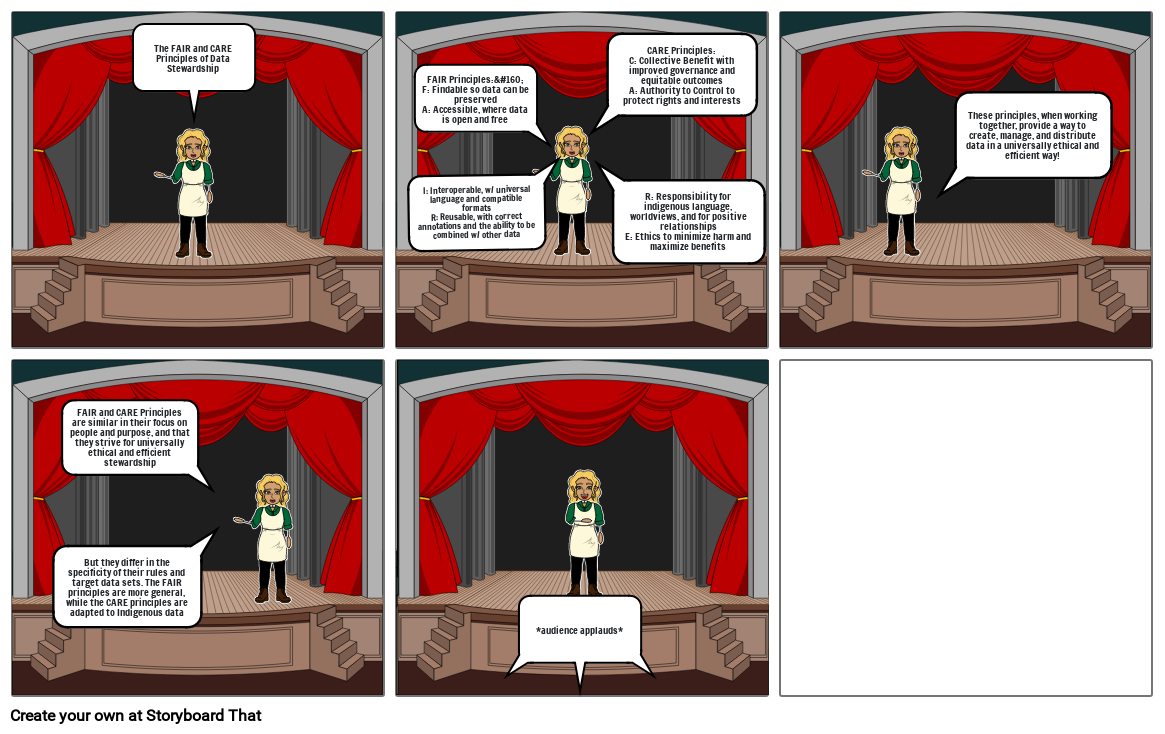FAIR/CARE

Kuvakäsikirjoitus Teksti
- The FAIR and CARE Principles of Data Stewardship
- I: Interoperable, w/ universal language and compatible formatsR: Reusable, with correct annotations and the ability to be combined w/ other data
- FAIR Principles:F: Findable so data can be preservedA: Accessible, where data is open and free
- CARE Principles:C: Collective Benefit with improved governance and equitable outcomesA: Authority to Control to protect rights and interests
- R: Responsibility for indigenous language, worldviews, and for positive relationshipsE: Ethics to minimize harm and maximize benefits
- These principles, when working together, provide a way to create, manage, and distribute data in a universally ethical and efficient way!
- But they differ in the specificity of their rules and target data sets. The FAIR principles are more general, while the CARE principles are adapted to Indigenous data
- FAIR and CARE Principles are similar in their focus on people and purpose, and that they strive for universally ethical and efficient stewardship
- *audience applauds*
Yli 30 miljoonaa kuvakäsikirjoitusta luotu

